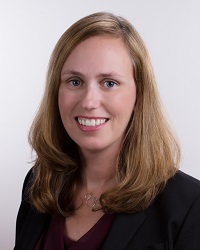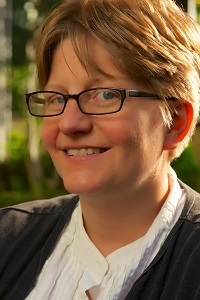Industry Keynotes
Stop Thinking About Requirements Quality, Focus on Value, Joy Beatty (Seilevel, USA)
Abstract: Many organizations try to measure whether or not they have good requirements. Researchers are working on new methods to measure quality of requirements. Unfortunately, both groups are trying to solve the wrong problem. The end game isn’t about requirements – or even project deadlines and budgets. The real target is the value a project actually delivers to an organization. Things like increasing revenue by a measurable amount or decreasing operational costs really are the end goal, and ultimately the measure of success. Fortunately, people typically do what their performance is measured against, so rallying an entire organization to measure value increases the potential for that value to be delivered.
To really have a successful project, requirements engineers need to start with understanding the desired value of the project. They need to align requirements efforts to elicit and specify only the requirements that will deliver that value. Then they work with development and test organizations to make sure the whole team maintains a razor sharp focus on delivering the desired value.
In this talk, we’ll share our research findings that show what executives really care about (and it isn’t reducing the number of missed requirements). We’ll review our experiences with measuring value on actual projects. Finally, we’ll outline the steps you can use to create this kind of change in your organization.
 Joy Beatty is a Vice President at Seilevel, a business analysis consulting firm whose mission is to redefine the way software requirements are created. Joy implements new methodologies that improve requirements elicitation and modeling. Her team provides assessments, mentoring, training and consulting services for companies across the US.
Joy Beatty is a Vice President at Seilevel, a business analysis consulting firm whose mission is to redefine the way software requirements are created. Joy implements new methodologies that improve requirements elicitation and modeling. Her team provides assessments, mentoring, training and consulting services for companies across the US.
Joy graduated from Purdue University with Bachelors of Science degrees in both Computer Science and Mathematics, and is actively involved as a leader in the requirements community. She is on the IIBA core team writing version three of the BABOK®. She also writes about requirements methodologies in journals, white papers, and blog posts. She co-authored Visual Models for Software Requirements with Anthony Chen, and Software Requirements, 3rd Edition with famed Karl Wiegers.
How Common is Common Enough? Finding a Balance between Dogma and Corruption in Requirements Engineering Practice, Sarah C. Gregory (Intel, USA)
Abstract: New requirements practitioners, whether new to the discipline itself or experienced authors just joining a project team, ask “What process must I follow here to create my requirements?” We respond with process descriptions, courses, webcasts, books, and even conferences about best practices and emerging trends in RE. Each method offered will be perhaps be perfect for a specific problem, but in most cases we won’t identify the perfect method until the end-of-project retrospective, when we can look in the rearview mirror and see what just happened. Our inclination will be to move forward with techniques that worked last time, and if we’re quite lucky, the same methods might work twice. More often than not, project and system complexity, cross-cutting concerns, organizational restructuring, and market changes will make last project’s best solution unworkable for the next one.
Even the best techniques are subject to dogma – the belief that rigid application of this approach will be the one that will save us from all of the broken promises of past practices – as well as corruption – the belief that we can simply go faster by shaving off bits and pieces of disciplined work, often in the name of being “agile”, but without Agile discipline. Requirements Engineering is in great demand and yet is also declared to be dead. What is the role of our discipline in a complex world, and how common must practice be to be “common enough” to move us forward safely between dogma and careless practices?
 Sarah Crary Gregory is a Senior Partner in the Intel Emergent Systems and Coaching team (IESC), Intel Corporation. In addition to worldwide development and deployment of Requirements Engineering methods and practices, IESC hosts the annual Agile@Intel conferences, instructs practitioners and senior management in principles of Agile, Lean, Kanban, and Solutions Thinking, and explores and pilots efforts to address the organizational and methodological challenges of complexity in our global multinational environment.
Sarah Crary Gregory is a Senior Partner in the Intel Emergent Systems and Coaching team (IESC), Intel Corporation. In addition to worldwide development and deployment of Requirements Engineering methods and practices, IESC hosts the annual Agile@Intel conferences, instructs practitioners and senior management in principles of Agile, Lean, Kanban, and Solutions Thinking, and explores and pilots efforts to address the organizational and methodological challenges of complexity in our global multinational environment.
As a Senior Methodologist in Requirements Engineering, Sarah develops and mentors Requirements Engineering subject matter experts across Intel worldwide, conducts training, and trains many course trainers. She is currently researching and piloting various pedagogical experiments in distance learning and cross-cultural instruction in RE. In fourteen years at Intel, she has extensively explored the human aspects of sociotechnical systems, primarily through the lens of requirements engineering. Her research interests reside in those boundary spaces, the marginal areas where cultures intersect and overlap with product development efforts. Sarah’s academic background includes graduate degrees in Law, Information Science, and Systematic Theology, and she is currently pursuing a doctorate in Social Theory in a joint program between the Graduate Theological Union and the University of California-Berkeley. Sarah lives in San Francisco, California.

